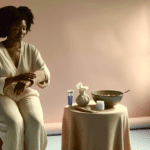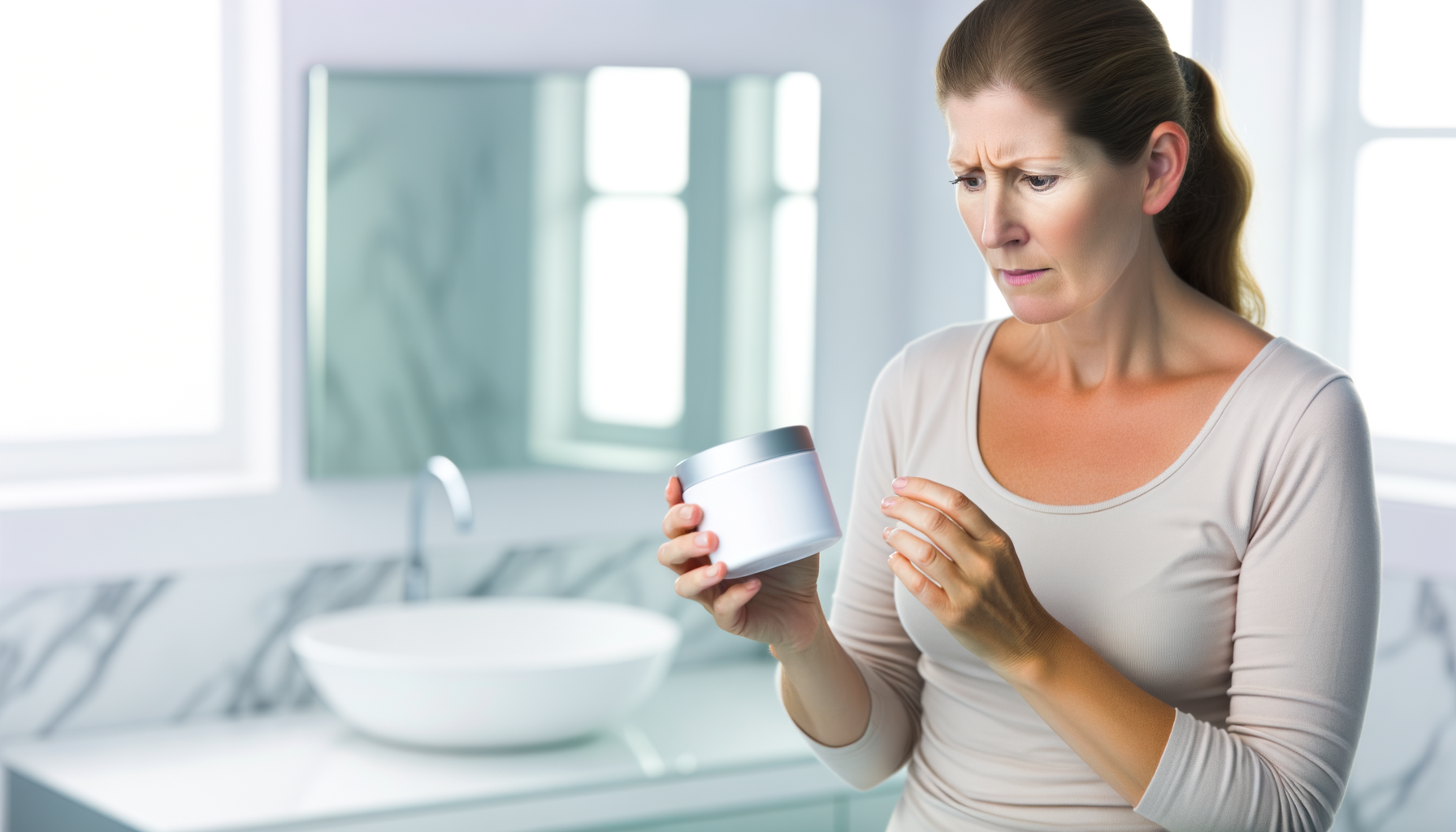Understanding Vulvar Anatomy
The vulva is the external part of the female genitalia. It includes the mons pubis, labia majora and minora, clitoris, urethral opening, vestibule, and perineum. Each of these components plays a vital role in the overall health and function of the reproductive system. The vulva is sensitive and susceptible to irritation due to its delicate skin and the moist environment it typically maintains.
Common Symptoms of Irritation
Vulvar irritation can manifest in various ways, with symptoms ranging from mild to severe. Common indicators of irritation include a burning sensation, stinging, itching, and discomfort. The vulva may appear red and swollen, and in some cases, there may be atypical vaginal discharge or pain during sexual activities. These symptoms can be distressing and may impact a woman’s quality of life, leading to emotional distress and sexual dysfunction.
When to Seek Medical Attention
While occasional dryness or irritation may not be cause for concern, persistent or severe symptoms warrant medical evaluation. It is important to consult a healthcare provider if:
- You experience severe vaginal itching or persistent swelling.
- Pain occurs during sex, or there is bleeding after sexual activity.
- There is unusual discharge or bleeding from the vagina, including bleeding between periods.
- Vaginal dryness persists for more than a week or significantly affects your daily life.
Medical attention is crucial to rule out underlying conditions that may require specific treatments, such as hormonal therapies, prescription medications, or lifestyle adjustments. Early diagnosis and treatment can prevent complications and improve outcomes. Remember, self-care and over-the-counter remedies are helpful, but they are not substitutes for professional medical advice and treatment.
Common Causes of Sudden Dryness
Hormonal Fluctuations
Vaginal dryness can often be attributed to hormonal fluctuations in the body. Estrogen, a hormone that plays a crucial role in maintaining vaginal lubrication, can vary due to several life stages and conditions, including menstruation, pregnancy, postpartum, and menopause. Birth control pills and anti-estrogen medications for conditions like breast cancer can also lower estrogen levels, leading to dryness. Even the menstrual cycle itself can cause temporary dryness, as estrogen levels are at their lowest during menstruation.
Skin Conditions
Skin conditions affecting the vulvar area can lead to dryness and discomfort. Dermatological issues such as eczema or psoriasis can extend to the vulvar region, causing irritation and a lack of natural moisture. Additionally, over-washing or using harsh soaps and detergents can strip away natural oils, exacerbating dryness.
Infections and STIs
Infections, including yeast infections and bacterial vaginosis, can disrupt the natural balance of bacteria in the vagina, leading to symptoms like dryness. Sexually transmitted infections (STIs) can also cause inflammation and changes in vaginal discharge, contributing to a feeling of dryness. It’s important to seek medical attention if an infection is suspected, as these conditions require treatment.
Allergic Reactions and Contact Dermatitis
Exposure to certain chemicals found in personal hygiene products, such as soaps, perfumes, and douches, can lead to allergic reactions or contact dermatitis. These substances can irritate the sensitive skin of the vulva and vagina, leading to dryness and discomfort. Antihistamines, while helpful for allergies, can also have a drying effect on the body, including vaginal tissues. It’s advisable to avoid products with fragrances or other potential irritants and to consult with a healthcare provider if an allergic reaction is suspected.
Understanding the various factors that contribute to vaginal dryness is essential for identifying the appropriate treatment. Whether the cause is hormonal, related to skin conditions, infections, or allergic reactions, addressing the underlying issue can help alleviate symptoms and improve comfort.
In-Depth Look at Specific Conditions
Folliculitis and Hair Removal Complications
Folliculitis is the inflammation of hair follicles, often caused by an infection. When it occurs in the vulvar area, it can lead to discomfort and the sensation of dryness or burning. Hair removal methods, such as shaving, waxing, or the use of depilatory creams, can exacerbate or even cause folliculitis. Symptoms include redness, itching, and the appearance of small, pus-filled bumps around hair follicles. Treatment typically involves keeping the area clean, applying warm compresses, and using topical antibiotics if an infection is present. In some cases, a healthcare provider may prescribe oral antibiotics.
Yeast Infections and Bacterial Vaginosis
Yeast infections, caused by the overgrowth of the fungus Candida albicans, can lead to a sudden feeling of dryness, itching, and burning in the vulvar and vaginal areas. Bacterial vaginosis, on the other hand, results from an imbalance of the natural bacterial flora in the vagina. Both conditions can cause discomfort and discharge, with yeast infections typically producing a thick, white discharge, and bacterial vaginosis resulting in a thinner, grayish discharge with a fishy odor. Treatment for yeast infections usually involves antifungal medications, while bacterial vaginosis is treated with antibiotics.
Autoimmune Disorders: Psoriasis and Lichen Planus
Autoimmune disorders can affect the vulvar skin, leading to chronic dryness and irritation. Psoriasis may present as scaly, itchy patches, while lichen planus often causes purplish, itchy, flat bumps. Both conditions can cause a burning sensation and require management under the care of a healthcare professional. Topical corticosteroids are commonly used to reduce inflammation and discomfort. In more severe cases, systemic treatments such as oral medications or biologics may be necessary.
Chronic Pain Conditions: Vulvodynia and Lichen Simplex Chronicus
Vulvodynia is characterized by chronic vulvar pain without an identifiable cause, leading to burning, stinging, or rawness. Lichen simplex chronicus is a condition where persistent scratching leads to thickened, leathery vulvar skin, which can be very itchy and painful. Management of these conditions often involves a multidisciplinary approach, including topical medications, oral pain relievers, physical therapy, and sometimes psychological support. Lifestyle modifications, such as wearing loose-fitting clothing and avoiding known irritants, can also help alleviate symptoms.
Understanding these specific conditions is crucial for women experiencing sudden dryness and burning sensations in the vulvar area. Early diagnosis and appropriate treatment can significantly improve quality of life and prevent potential complications. Women experiencing these symptoms should seek medical attention to determine the underlying cause and receive personalized care.
Hormonal Changes and Their Impact
Menstrual Cycle Variations
The menstrual cycle is a complex interplay of hormones, primarily estrogen and progesterone, which can significantly affect vaginal moisture levels. During the menstrual cycle, estrogen levels rise to prepare the uterus for a potential pregnancy and then fall if pregnancy does not occur, leading to menstruation. It is during this time, when estrogen levels are at their lowest, that individuals may experience vaginal dryness. Additionally, the use of tampons can exacerbate this dryness by absorbing not only menstrual blood but also the natural moisture of the vagina. To mitigate this effect, it is recommended to use the least absorbent tampon necessary and to stay hydrated.
Effects of Menopause and Perimenopause
Menopause and the transitional phase leading up to it, known as perimenopause, are characterized by a decline in estrogen production. This hormonal change can lead to thinning and drying of the vaginal tissue, a condition known as vaginal atrophy. The symptoms can include dryness, irritation, and discomfort during intercourse. For many, these symptoms are more than just a nuisance; they can significantly impact quality of life and sexual health. Hormone replacement therapy (HRT) may be prescribed to alleviate these symptoms by supplementing the body’s estrogen levels. However, it is essential to discuss the risks and benefits of HRT with a healthcare provider, especially for those with a history of breast cancer or other estrogen-sensitive conditions.
Pregnancy and Postpartum Considerations
Pregnancy brings about a surge of hormonal changes designed to support the developing fetus and prepare the body for childbirth. While estrogen levels generally increase during pregnancy, some individuals may still experience vaginal dryness due to fluctuating hormones and changes in blood flow. Postpartum, especially for those who are breastfeeding, estrogen levels can drop significantly. Breastfeeding naturally suppresses the ovarian hormones to prevent immediate subsequent pregnancy, which can lead to prolonged dryness and discomfort. It is important for new mothers to discuss these symptoms with their healthcare providers to explore safe and effective treatment options.
Understanding the hormonal influences on vaginal health is crucial for managing symptoms effectively. Whether it’s the natural ebb and flow of the menstrual cycle, the significant shifts during menopause, or the hormonal rollercoaster of pregnancy and postpartum, being informed about these changes can empower individuals to seek appropriate treatments and make lifestyle adjustments that support their overall well-being.

Treatment Options and Home Remedies
Over-the-Counter Medications and Topical Treatments
For those experiencing mild to moderate vaginal dryness, a variety of over-the-counter (OTC) options are available. Vaginal moisturizers designed for regular use can help maintain moisture levels and are often applied every few days. Water-based lubricants can be used during sexual activity to reduce discomfort and are compatible with condoms. It’s important to avoid products with fragrances or irritating chemicals, as these can exacerbate dryness. For itching and minor irritations, hydrocortisone creams may provide temporary relief, but prolonged use is not recommended without consulting a healthcare provider.
Prescription Medications and Therapies
When OTC treatments are insufficient, prescription options may be necessary. Topical estrogen creams, tablets, or rings can be prescribed to alleviate dryness by replenishing local estrogen levels. These are particularly useful for menopausal women but require careful monitoring by a healthcare professional. In cases where antidepressants or other medications contribute to dryness, a doctor may adjust dosages or suggest alternative treatments. For chronic conditions, specialized therapies such as hormone replacement therapy (HRT) may be considered under medical supervision.
Lifestyle Changes and Preventative Measures
Lifestyle adjustments can play a significant role in managing vaginal dryness. Staying hydrated, reducing alcohol and tobacco use, and managing stress through relaxation techniques can improve overall vaginal health. Wearing breathable, cotton underwear and avoiding tight clothing reduces irritation and allows for better air circulation. For menstrual-related dryness, using the least absorbent tampon necessary or opting for menstrual cups may help. It’s also crucial to avoid douching and the use of scented products in the genital area.
Alternative and Complementary Therapies
Some individuals may find relief through alternative therapies, though these should be approached with caution and discussed with a healthcare provider. Natural oils like coconut, olive, or almond oil can be used as lubricants, but they may not be compatible with all condoms and can increase the risk of infections if not used properly. Dietary changes, such as incorporating soy products, which contain phytoestrogens, may offer some benefit, though scientific evidence is limited. Engaging in extended foreplay can naturally increase lubrication and enhance sexual experience.
Remember: While home remedies can provide relief, they should not replace professional medical advice, especially if symptoms persist or worsen. It’s essential to consult with a healthcare provider to ensure the appropriate treatment for the underlying cause of dryness.

Feeling You Have a Right to Safe Beauty & Fem Care?
If so, it may be time for a change. It starts with knowledge. We have a few suggestions in our new guides.
Understanding and Managing Chronic Conditions
Navigating Lichen Sclerosus
Lichen Sclerosus is a chronic skin condition that affects the vulvar area and can lead to dryness, itching, and white patches of skin that are thinner than normal. It’s important to manage this condition to prevent further discomfort and potential complications. Treatment typically involves topical corticosteroids to reduce inflammation and immune-modulating medications. Regular monitoring by a healthcare provider is crucial, as untreated lichen sclerosus can increase the risk of skin cancer in the affected areas. Additionally, patients are advised to avoid irritants, use gentle hygiene practices, and consider emollients for moisturizing the sensitive skin.
Dealing with Vulvar Intraepithelial Neoplasia (VIN)
Vulvar Intraepithelial Neoplasia, or VIN, is a pre-cancerous condition where abnormal cells are found on the surface of the vulvar skin. Symptoms may include itching, burning, and noticeable skin changes. VIN is often managed through regular surveillance and biopsies to monitor for progression. Treatment options vary depending on the severity and may include topical treatments, laser ablation, or surgery to remove affected tissue. It’s essential for individuals with VIN to have ongoing follow-ups with their healthcare provider to ensure early detection and treatment of any progression to vulvar cancer.
Approaching Vulvar Cancer
Vulvar cancer is a rare but serious condition that can cause dryness and irritation in the vulvar area. Early symptoms may mimic less severe conditions, making awareness and timely diagnosis critical. Treatment for vulvar cancer often involves surgery to remove the cancerous tissue, which may be followed by radiation or chemotherapy depending on the stage and spread of the disease. Supportive care, including pain management and psychological support, is also an important aspect of treatment. Survivors of vulvar cancer may experience long-term effects such as changes in sexual function and body image, and they may benefit from sexual health counseling and support groups.
Managing chronic vulvar conditions requires a multidisciplinary approach that includes gynecologists, dermatologists, oncologists, and other specialists as needed. It’s vital for individuals to maintain regular medical appointments, adhere to treatment plans, and stay informed about their condition. Empowerment comes from understanding these chronic conditions and actively participating in the management and decision-making process regarding treatment options.
By the way, something for you, a little gift!!!
I am just in the middle of publishing my book. It’s about How women can balance their hormones. One part is about food and diet, of course.
Follow this link and enter your email.
I will send you this part of the book for free once the book is published. It has many concrete, practical tips and recipes and will help you feel better during menopause or times of Big hormonal fluctuations.
Annette, Damiva Lead for Health & Wellness

Conclusion: Empowerment Through Knowledge
Summarizing Key Points
Vaginal dryness can be a distressing symptom, affecting quality of life and intimate relationships. Throughout this article, we’ve explored a variety of factors that can lead to sudden dryness, including hormonal fluctuations, skin conditions, infections, and the use of certain medications. We’ve also delved into specific conditions such as autoimmune disorders and chronic pain conditions, and how they can impact vaginal health. Additionally, we’ve discussed the role of hormonal changes during different life stages, such as menstruation, pregnancy, and menopause, and their effects on vaginal lubrication.
The Importance of Professional Diagnosis
While understanding the potential causes of vaginal dryness is important, self-diagnosis can be risky. It’s crucial to seek a professional diagnosis to ensure that any underlying conditions are properly identified and treated. Healthcare providers can perform a thorough examination and may conduct tests to determine the exact cause of dryness. This approach ensures that the treatment plan is tailored to your specific needs, whether it involves hormonal therapies, over-the-counter remedies, or lifestyle adjustments.
Advocating for Personal Health
Empowerment comes from knowledge and the confidence to advocate for your own health. It’s important to communicate openly with healthcare providers about any symptoms you’re experiencing, as well as any concerns or questions you may have. Remember that you have the right to comprehensive care and to make informed decisions about your treatment options.
Here are some steps you can take to advocate for your health:
- Keep a symptom diary: Track your symptoms, noting when they occur and any potential triggers.
- Research: Educate yourself about possible conditions and treatments, but always verify information with a healthcare professional.
- Ask questions: Don’t hesitate to ask for clarification or further information during medical appointments.
- Seek second opinions: If you’re unsure about a diagnosis or treatment plan, consider consulting another healthcare provider.
- Practice self-care: Engage in healthy lifestyle choices, such as staying hydrated and managing stress, which can positively impact vaginal health.
In conclusion, understanding the causes and treatments of vaginal dryness is the first step towards managing this condition. By seeking professional advice, advocating for your health, and making informed decisions, you can find relief and maintain your well-being.



















